Optimal therapy selection through precise analyses

The optimal treatment based on precise analyses
Choosing the right cancer therapy is crucial for the success of the treatment. Our cancer therapy tests are based on detailed genetic and molecular analyses of your tumor cells, which we carry out in our specialized laboratory. These tests help us to identify the most effective treatment approaches for you - individually and precisely tailored to the specific characteristics of your tumor.
Precise therapy decisions through laboratory-based tests on your cancer cells
How do our cancer therapy tests work?
Our cancer therapy tests are based on the thorough analysis of the cancer cells taken in our specialized laboratory. Outside the human body, tests can be carried out much more quickly without endangering the patient. Once your cancer cells are provided by a biopsy or an existing sample, we perform a variety of tests to understand how these cells respond to different therapies. This is done in a safe laboratory environment without exposing your body to the potential side effects of incorrect therapy attempts.
explanatory video
With targeted therapy tests, the best treatment option for your individual cancer



Why are they important?
Conventional cancer therapy often relies on "standard treatments" that are not tailored to the individual characteristics of the tumor. This can lead to ineffective treatments and unnecessary side effects. Our laboratory-based tests go one step further: They give us precise information about how your cancer cells respond to specific treatments. This allows us to avoid inefficient therapies and maximize the chances of success of your treatment.
Advantages of our therapy tests
Individual therapy planning
Through our laboratory-based tests, we ensure that the therapy is precisely tailored to the specific properties of your cancer cells. We analyze how your tumor cells respond to chemotherapy, targeted therapies, immunotherapies or other treatment methods. This allows ineffective therapies that are associated with unnecessary side effects to be ruled out at an early stage.
No experiments on patients
You do not have to undergo "trial therapy". Our tests are performed directly on the cancer cells in our laboratory, so we can test your cells' response to various treatments without any stress on you. This minimizes the risk of being exposed to ineffective or incorrect therapy.
Precise and well-founded decisions
Based on the test results, we can work with your doctor to make the best possible treatment decision. This precision in treatment planning helps to maximize the chances of success and avoid unnecessary treatment approaches.
chemotherapy
Chemotherapy is one of the most commonly used treatments for cancer. However, not all cancer cells respond the same to the various chemotherapy drugs available. In our laboratory, we test how your cancer cells respond to different chemotherapy drugs.
Goal: Destroying cancer cells through the use of chemotherapeutic agents.
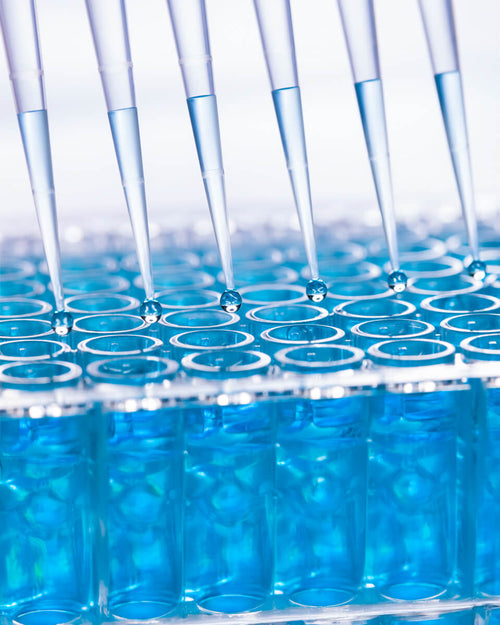
How does the test work?
We take your cancer cells and expose them to a variety of chemotherapy drugs to see which drug has the greatest effect on tumor growth.
Advantage: Through these tests, we can select the drug that best fights your cancer cells while minimizing possible side effects by eliminating ineffective chemotherapy drugs.
radiotherapy
Radiotherapy is one of the main treatments for many types of cancer. It works by damaging the DNA of cancer cells so that they stop dividing and eventually die. Radiotherapy can be used alone or in combination with other forms of treatment such as chemotherapy or surgery.
Goal: Destruction of cancer cells using high-energy rays.
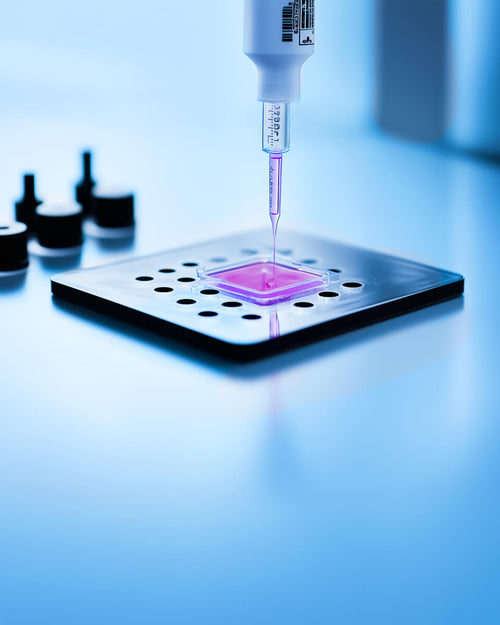
How does the test work?
In our laboratory, we analyze how sensitive your cancer cells are to radiation. This helps determine the exact dose and intensity of radiotherapy to achieve the best results while sparing healthy cells as much as possible.
Advantage: Through the tests, we can determine the optimal radiation dose that effectively fights your cancer cells without causing unnecessary side effects. This ensures precise and gentle radiation therapy that is tailored to the individual needs of the patient.
Molecular targeted therapy
Molecularly targeted therapies attack specific genetic mutations or molecules that promote tumor growth. Through our genetic and molecular analyses, we identify these weak points in your cancer cells. We then test how these cells respond to various targeted drugs.
Goal: Attack specific molecular weaknesses of the tumor.
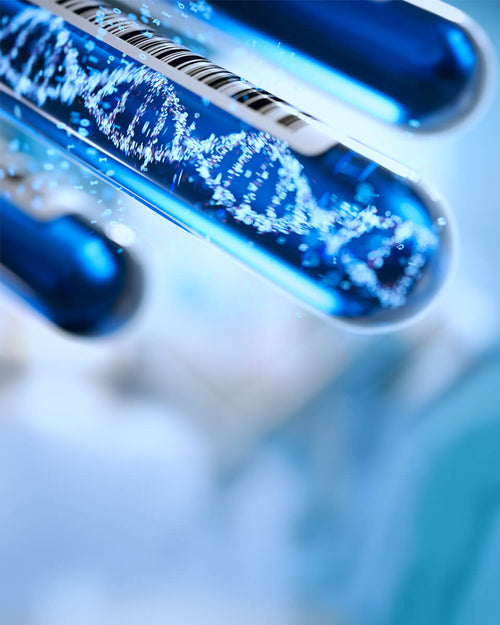
How does the test work?
We examine whether your tumor cells have genetic alterations such as EGFR mutations, ALK or BRAF fusions. Based on this information, we test targeted drugs that specifically target these mutations.
Advantage: Since targeted therapies act precisely against the weak points of the tumor cells, they can be particularly effective while largely sparing healthy cells.
Immunotherapy
Immunotherapies use the body's own immune system to identify and destroy tumor cells. This form of treatment is particularly effective when certain immune markers (such as PD-L1) are present in the cancer cells.
Goal: Activation of the immune system to fight cancer cells.
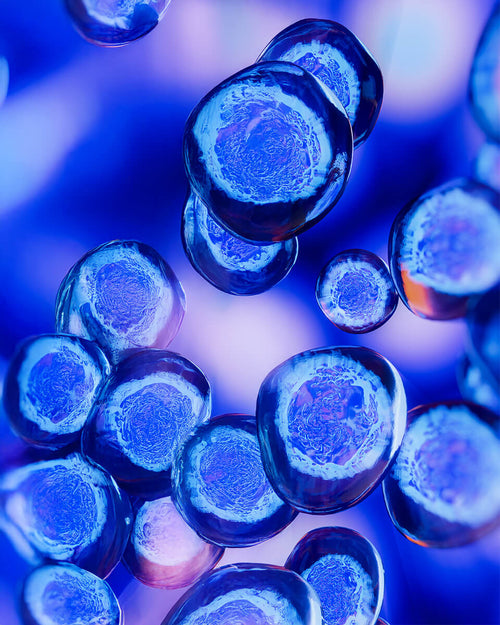
How does the test work?
We analyze the immune markers on the surface of your cancer cells to see if your tumor might respond to immunotherapies. Then we test whether these therapies trigger an immune response that fights the tumor.
Advantage: Immunotherapies can be particularly effective because they strengthen the body's own immune system to attack the cancer. This approach can often be successful even when other therapies fail.
Hormone therapy
Certain types of cancer, such as breast or prostate cancer, are hormone-dependent, meaning they require hormones such as estrogen or testosterone to grow. Hormone therapies work by blocking the production of these hormones or preventing their effect on tumor cells.
Goal: Blockade of hormone-dependent tumors.
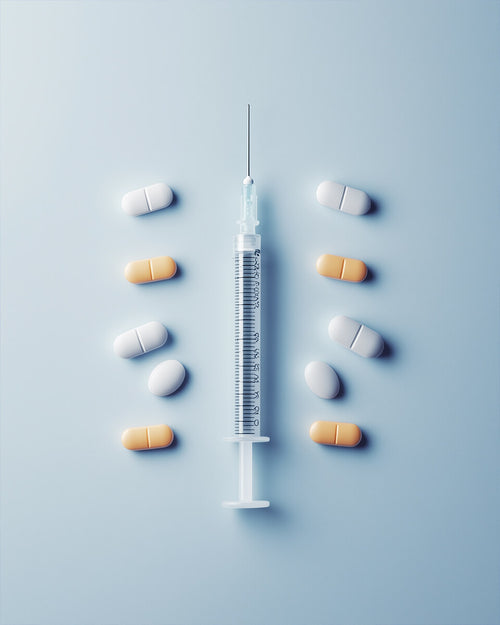
How does the test work?
We analyze your cancer cells to see if they are hormone dependent. If so, we test how the tumor cells respond to various hormone-based therapies that slow or stop the cells' growth.
Advantage: Hormone therapies are particularly effective in tumors that depend on hormones and can stop the progression of the disease without requiring more aggressive methods such as chemotherapy.
Combination therapy
In some cases, we test not only individual therapies, but also combinations of different treatments. Chemotherapy, for example, can be combined with molecularly targeted therapy or immunotherapy to attack the tumor on several levels.
Objective: Combined approaches to maximize effectiveness.
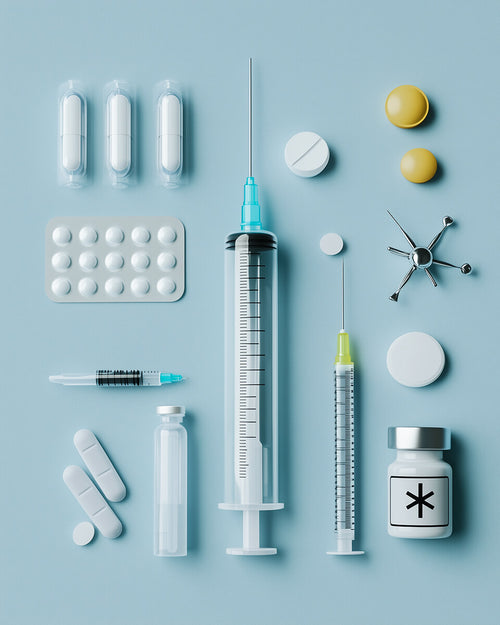
How does the test work?
We expose the cancer cells to a combination of treatments to find out which combination produces the best results.
Advantage: Combinations can strengthen therapeutic approaches by simultaneously activating different tumor-fighting mechanisms. This can increase effectiveness while reducing the likelihood of resistance.
Targeted therapy selection made easy
Find the right package
Your health deserves the best, personalized approach. CancerGen Labs offers customized packages to find the best therapy for your specific situation.
We also offer you additional support services to ensure comprehensive care. Be it coordination between you and the attending physician, discussion of your results, organization of sample collection (e.g. blood or tissue) in a specialized clinic, exclusive care from one of our doctors, support from a qualified interpreter and accommodation in a high-quality and well-known 5-star hotel. We are happy to support you. Feel safe and supported at every step!
Maximum and exclusive care
Important questions and topics
How long does it take to receive my test results and how will I be notified of the results?
After your sample has been taken, it usually takes about 10 to 14 days for the test results to be available. You will receive a detailed report containing the results of the cancer analysis and therapy tests. This report will either be sent to you directly or discussed with your treating doctor. We also offer a detailed consultation to explain the results and plan your next steps.
What costs are incurred and will they be covered by my health insurance?
It is possible that your health insurance company will cover the costs of cancer cell sampling. The costs for our cancer analyses and therapy tests vary depending on the extent of the examination. There are various package options and the option to select individual tests individually. Whether your health insurance company covers the costs depends on your insurance contract and the medical benefit of the tests. We recommend clarifying this in advance with your health insurance company and your doctor.
What samples are needed for the tests and how are they collected?
Our cancer analysis usually requires a tissue sample (biopsy) or blood sample. Your doctor or a specialized laboratory can take this sample. For certain tests, a simple blood sample is sufficient, while more complex analyses require a tissue sample. The exact requirements will be discussed with you in advance.
Can I have the tests done even if I am already receiving treatment?
Yes, our tests can be carried out both before starting treatment and during ongoing therapy. Especially in cases where therapy does not work as expected, a new analysis of the tumor cells can provide valuable information for adjusting the treatment.
Is personalized cancer therapy (precision medicine) suitable for every type of cancer?
Personalized cancer therapies can be used for many types of cancer, including breast cancer, lung cancer, colon cancer and more. However, the suitability of such therapies depends on the specific genetic structure of the tumor. The tests help determine whether precision medicine treatment makes sense in your case.
How reliable are the test results and how accurate are the analyses?
Our tests are based on highly accurate, scientifically validated methods performed in specialized laboratories. The results are therefore extremely reliable and are evaluated by experienced professionals. Nevertheless, it is important to evaluate the test results in the context of your entire medical history and with the involvement of your doctor.
Can I have the tests done outside of Germany?
Yes, we offer our services internationally. The exact procedures for sample collection and shipping may vary by country, but our team will be happy to help you coordinate. Please contact us to learn more about availability and the process in your country.
What samples are needed for the tests and how are they collected?
Our cancer analysis usually requires a tissue sample (biopsy) or blood sample. Your doctor or a specialized laboratory can take this sample. For certain tests, a simple blood sample is sufficient, while more complex analyses require a tissue sample. The exact requirements will be discussed with you in advance.
























